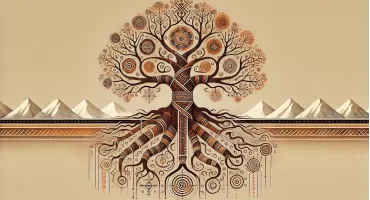In April 2019, Permanent Forum on Indigenous Issues Chair Anne Nuorgam said, “We need to ensure that (indigenous people’s) educational practices, languages, environmental conservation and management is acknowledged and respected globally, not only by Governments, but by all peoples,” in the Open Annual Session of the Permanent Forum. While the world, from actor Leonardo Di Caprio to musician Neil Young, have extended their support indigenous people’s rights and the preservation of the indigenous way of life, I have often wondered if that way of life is rational in the modern world. Or a more pertinent question looms large – “is the indigenous way of life needed in the world of today?”
I believe that people have a right to choose the way they live and I think philosophy often overextends itself in its principles. Let us take Kirati philosophy on life as a prime example for it is largely a philosophy rather than just a bunch of traditional rituals. My understanding of the Kirati way of life is not the one where one seeks rewards in the afterlife; it is rather one of spiritual yearning and righteous living. But the one that is not based on a moral set of principles dictated by the written rules of man. Mundhum, which the Kiratis follow is essentially a set of traditional knowledge that is transmitted between generations through stories, songs, dances, carvings, art and performances. But these traditional knowledge and practices are usually based on man’s relationship with nature and how one must live as a part of nature without causing it any harm in even the smallest measure.

That is the fundamental and physical truth of the universe on which even nature works. Kirati Khambu Rai people, therefore invariably worship nature believing that all things found in nature, are created by nature (not by God) and hence must be revered. But these ideals have mostly been forgotten by the indigenous people themselves most of whom seek a more embellished survival in the cities and towns and are striving to become modern. A large part of the Kirat Mundhum does not pertain to the norms followed by any major religion today and the norms that are followed are not related to government policies, modern judicial systems, authority structures or social politics. Kirat Mundhum largely practices the idea of how important the environment is for our own survival as a species. It answers the question to how we live a successful life rather than how we live an embellished life. It focuses on our relationship to the earth and to nature.
For many Indigenous people, land relates to all aspects of existence – culture, spirituality, language, law, family and identity. Rather than land belonging to him, each person belongs to a piece of land. With kinship, communal land tenure systems and within a tribal community, the land also provides a sense of belonging with each other. Any indigenous person is entrusted with the knowledge and responsibility to care for their land, providing a deep sense of identity, purpose and belonging. But the challenges of maintaining this sense of responsibility in the age of globalization and information are becoming extremely large. The intimate knowledge of the land and ways of relating to it are also reflected in language, including many words and concepts that have no English equivalent. But ancient languages are mostly on the verge of disappearance.

The Kirat Mundhum is the model, a rule, a code which shows man the path to a life with nature. It is the map to an ethereal world, waiting to be interpreted and acted upon to reach up to a precise scale of values. It is advisable to not compare the Shamans as priests but to see them as a medium, a power gained from guiding spirits to take our messages across the spiritual, to the unknown world where one finally rests in peace. But is the motive of a true Kirati to be united with the ancestors and live in peace in the afterlife? The Mundhum encourages belief. Belief informs action, and all too often, those holding to truths impact the world around them: how they raise their children, how they conduct themselves in the world and what they think is moral and immoral. The Mundhum is fair because nature does not take sides. It only balances the harmony of life. Other than rituals and folklores, the Mundhum is mostly about living in humility and the truth-the essence of which commands righteousness.
How long these system, customs, practices and principles will last is really up to the younger generations of indigenous people. But if their philosophy is accepted, acknowledged and practiced, the world will be a much better place.





Leave a Reply